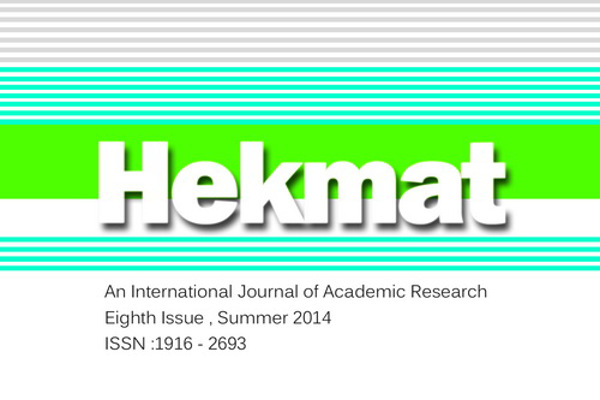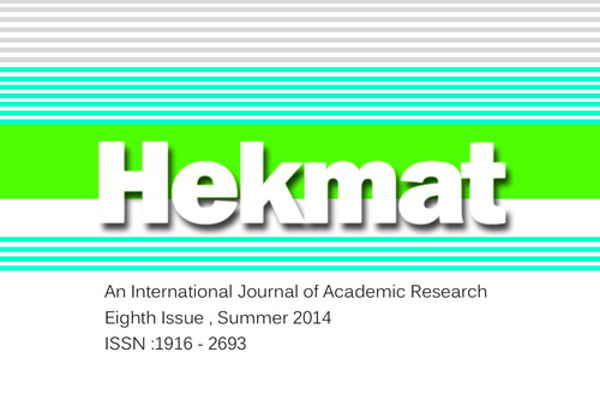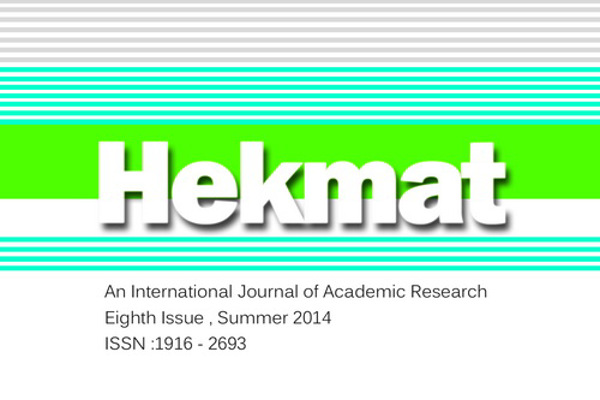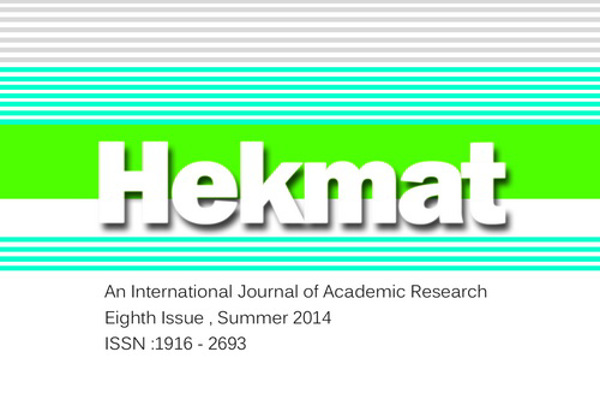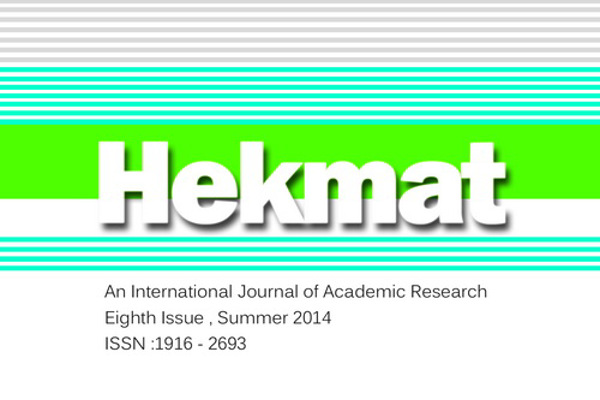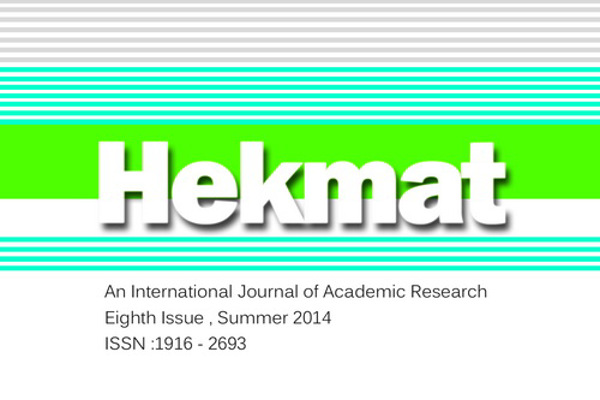The Koran and Islamic Leaders on Peaceful Coexistence among the Followers of Divine Religions / By: Mohammad asadi
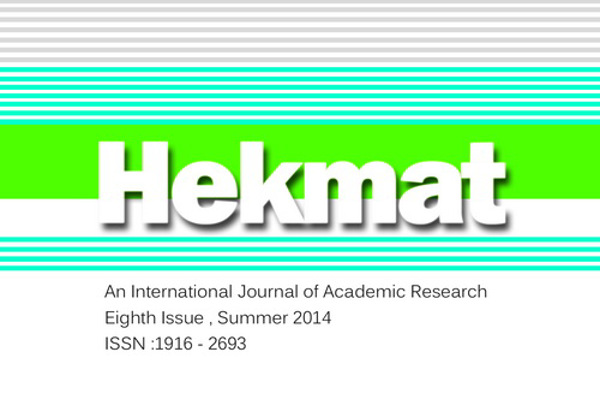
1. Freedom of Thought and Belief
Some Koranic verses emphasize the freedom of thought and belief stating that it is principally impossible to force a particular belief; in this field, compulsion is meaningless. “In regard to religion, there is no compulsion; verily, the sound path is discerned from insanity.” Elsewhere, the Koran says, “Had thy Lord wished, the entire population of the world would have accepted the faith, is it you who would like to force people to convert?” The Koran explicitly declares that the only responsibility of the holy Prophet is to carry the message of God to mankind and He has no responsibility as to their rejection or acceptance: “And say the Truth is of Thy Lord; let anyone who decides to believe do so and let anyone who decides to disbelieve, do so.” In another verse of the Koran, God explicitly says that the holy Prophet is not responsible for the choice people make in regard to their faith: “And had thy Lord wished, they would not have taken partners to God; and we have not charged you with the task of protecting them; and you are not their attorney.”
We gather from several Koranic verses that dialogue and logical argument are the only ways to promote belief in God and preach religion. Religious leaders are supposed to explain divine precepts to people and give them the opportunity to make up their mind freely. In doing so, rational arguments to prove the existence of God and the truthfulness of religion should be presented to people in the best manner. The holy Koran invites people to contemplate on the creation of the world and see God the creator and think about good and evil and find the right path by reason. “We shall show them our signs in the cosmos and within their inner world so that they come to realize that it is the truth. Is it not sufficient that your Lord is witness to everything?” The universe serves as a sign leading to the holy creator: “And there are signs on the Earth for those who attain at the stage of certainty and also within your inner world; can’t you see?”
2. Considering the Common Principles
As a religion calling to peaceful coexistence among people from its advent, Islam addresses the followers of the Holy Scripture: “Say O people of the book, let us agree on certain principles common among us; to worship no one but God, to call no partner to Him, to take none as the lord accept Him. If they reject this call, then say witness that we are Muslims.” This is a very important message calling the followers of the Holy Scriptures to unity. This verse differs from the previous ones because it invites to common principles while they invited to Islam. It teaches us that we should try to find the common grounds for cooperation with people who are not prepared to join us fully.
3. Rejection of Racism
The holy Koran rejects racial tendencies of any kind. It declares that all human beings are children of the same parents; Adam and Eve. So, no one is superior to others on account of race, ethnicity, or faith. The Koran says, “O people! Verily, we have created you from a male and a female and categorized you in different nations in order that you may know each other; verily, the more honored of you in God’s eye are those who are more pious; verily, God is knowledgeable and aware”. Belief in equality among all human beings is an indispensable pillar of peaceful coexistence. Racism, egotism, and contempt for other peoples have brought about untold suffering for humanity. The two world wars illustrate this fact. The Koran views differences among people in terms of ethnicity, race, language, and the like as a sign of divine best design in creation. This serves to make it possible for human beings to recognize one another. It is vital for social interaction.
The entire humanity forms one single family in Koranic view. All members of this family are of equal rights and merits except the excellence individuals may acquire through piety. The Koran says, “Humanity was one single nation; then, God appointed apostles bringing good news to people and warning them; He revealed the Holy Scriptures with truth in order that the disputes among people are settled down.” Many of the verses in the Koran address all human beings. Phrases like “O children of Adam” and” O people” are not scarce in the Koran. What makes this locution significant is the fact that the common essence of humanity shared by all nations is the real addressee.
4. Logical Dialogue
The holy Koran demands of Muslims the establishment of a peaceful constructive and logical dialogue with the followers of other religions on the basis of the common principles that they all share. “Do not argue with the followers of the book except in the best possible manner and except with those of them who commit injustice, and say we announce our belief in what is revealed to us and what has been revealed to you; our God is the same as yours and we submit to Him”. Some of the Koranic verses we mentioned earlier prescribe how Muslims are supposed to treat the ignorant headstrong polytheists. In this verse, the appropriate way of treating the followers of other divine religions is described. The difference between these two groups of people from the point of view of dialogue is that the latter shows readiness to hearken to divine message already via following the early apostles while the former is too obstinate to listen to the truth.
The holy Koran prohibits insulting and cursing the infidels and anticipates that if Muslims resort to such means, then their adversary resorts to the same in return: “And do not curse those people who invoke other deities rather than God; for, they will return by cursing God out of ignorance; it is in this manner that we have decorated the behavior of every nation in their own eyes; then, their return will be to their Lord who will inform them about all what they have done”. From this verse of the Koran, we gather that some Muslim fanatics were so obsessed to forget the fundamental principle of logic hence their emotional reactions to heresy. The Koran reminds them the principles of morality and forbids excessive reaction even to the most superstitious ideas and behaviors. The wisdom behind this decree is the attention to the fact that every nation cherishes some degree of prejudice about their beliefs. Consequently, emotional negative reactions to beliefs of different nations bring about hostility and perhaps further dogmatism.
5. Welcome Peace Proposals
The Koran says, “Then, if they retreat and stop fighting you and propose peace, then, God does not let you try to overcome them.” The above verse of the Koran was revealed on a particular occasion. Two Arab tribes were allied. One of them signed nonaggression treaty with the holy Prophet. After a while, Muslims came to understand that the other tribe is approaching Medina in a 700-man-strong army led by Masud bin Rujaylah. The holy Prophet dispatched a messenger to them inquiring about their intentions. They said they had come to sign a similar agreement with Medina because they felt neither as strong to fight the enemies of Muslims nor prepared to join them against Muslims since their home was located in the vicinity of Medina. On that occasion, the aforementioned verse of the Koran was revealed. The holy Prophet of Islam welcomed their proposition and gave them a precious gift.
6. Acknowledgment of the Rights of Minorities
Islam guarantees the freedom of all minorities and their rights and dignity. Islam safeguards social justice for all irrespective of faith, race, ethnicity, language, and color. Religious minorities are provided with the right to enter into a particular agreement with the Islamic nation acquiring full citizenship. Explicitly announcing the general policies Islam adopts regarding the rights of other religions, the Koran says, “God does not stop you from fine, fair, and just treatment of those non-Muslims who do not fight you on the cause of faith and do not send you to exile for the same reason; verily, God loves those who are just”. Elsewhere, the Koran says, “God prohibits you from making friends only with those people who fought you on the cause of faith and sent you to exile and helped one another in expelling you; so, whoever makes friends with them would be unjust.” These two verses of the Koran declare the principal policy of Islam about non-Muslims; so long as they evade cooperating with the enemies of Muslims, they can live among Muslims freely.
According to Islamic law, non-Muslim are allowed to practice their religious code of conduct even if it disaccords with Islam's. Supposed under treaty with Muslims, they are to avoid public breach of rules. If they commit an act considered illegal by their Sharia and Islam's, they may be tried in the Islamic court of law or according to their own code. If non-Muslims file a case in a Muslim court of law, the court may hear or refuse it. About this, the Koran says: “If they come to you [asking to judge in their disputes], it is up to you to decide whether to judge or refuse”. Considering the circumstances, Muslim court of law can refuse hearing cases no party to which is Muslim. This is a measure taken in order to guarantee that the relationship between Muslims and non-Muslims remains peaceful and smooth. It goes without saying that if a Muslim court of law undertakes to judge in a case, it must do so on the basis of the criteria of justice. But sometimes, such criteria are not recognized by non-Muslims. Consequently, the judgment of the Muslim court may not only fail to settle a dispute of such quality but also cause a new crisis.
7. Acknowledgment of the Early Divine Books and Apostles
There is a general harmony among all Holy Scriptures in fundamental issues of religion. They all pursue a common goal. Nevertheless, they differ in issues of secondary importance. This is quite natural. Different divine religions are designed to lead humanity in different epochs. The natural law of gradual development requires that successive codes fix the problems their predecessors failed to solve. This is true about religions too. Expressing respect for previous prophets and Divine Scriptures, the Koran says, “And we have revealed the book to you in truth acknowledging the books which have been revealed earlier and superseding them; so, judge among people according to what God has revealed.” There are approximately 20 other verses in the Koran confirming the truthfulness of the old and new Testaments. In principle, it is a divine law that every prophet reaffirms his predecessor, and every Divine Scripture confirms the previous one. On this point, the Koran says, “And after them, we appointed Jesus the son of Mary who reaffirmed the previous holy book the Torah; we gave Him “Injeel” [the holy book containing good news, i.e. the Bible] with guidance and light in it reaffirming the Torah that was the preceding book and guidance and lessons for the pious.”
8. International Peace
From its advent, Islam has laid the foundations for peace. International peace and global coexistence can be built on these foundations. Peace is the very spirit of Islam. Even the term “Islam” is derived from the root “Salm” meaning peace and security. The Koran calls everybody to peace and security: “Oh you believers! Enter into peace altogether”. God orders His prophet to accept an offer of peace made by His enemies: “If your adversary opts for peace, you should opt for peace too.” Islam attaches so much importance to peace among all human beings that it persuades Muslims to adopt a behavior that may contribute to the replacement of animosity with friendship: “It is hoped that God turns animosity between you and them into friendship and God is competent and God is forgiving and compassionate.”
Historically speaking, Muslims were faced with two groups of non-Muslims. One group expressed hatred towards Muslims, fought them, expelled them from their home, and confiscated their properties. The polytheist inhabitants of Mecca especially some leaders of the tribe Quraysh represented this group. They prosecuted Muslims only because they accepted the new faith. The second group was also infidels. Some of them were polytheists. But, they were neutral towards Muslims. Many Arab tribes fell into this category. To such people, Islam is open. In principle, violence is legitimate only as a defensive measure when inevitable.
9. Fighting Illusionary Religious Superiority
In some verses of the Koran, we see that God denounces bias and extremism found in some religions. Such fallacious beliefs have given rise throughout history of mankind to intolerance and violence against the followers of other religions. As a compliment to invitation to peaceful coexistence of all followers of all divine religions, Islam criticizes false ideas triggering religious disputes.
The Koran relates that some groups of the Jewish and Christian nations wrongly thought they were exclusively selected by God, they were the only people chosen by God and given the Paradise as reward. “The Jews and the Christians said we are the children of God and His beloved. Ask them, “Why does He punish you for your sins? Nay, you are but human beings; part of His creation; He forgives whom He wishes and He punishes whom he wishes; and the kingdom of the heavens and the earth and whatsoever exists betwixt them, belongs to Him, and to Him is the return”. In another verse of the Koran we read: “And they said no one would enter the Paradise except the Jews or Christians. So is their whim. Say produce a proof if you tell the truth. Of course, whoever submits his face to God and does good shall see his reward with his Lord; they have no fear nor will they grieve”.
10. International Corporation
Cooperation is vital for social life. In the international arena, cooperation in various aspects of political, economic, cultural, and social life is the only way to solve global problems humanity faces. The Koran endorses cooperation as a rational method. It calls to “Cooperation” for virtue and piety and forbids contributing to vice and invasion.” On an international scale, efforts put to justice, peace, equality, security, and development embody virtue. Fighting racism, colonialism, and imperialism in order to eradicate the roots of tyranny embody piety. To strengthen international understanding, it is necessary to rely on common principles. To facilitate cooperation on an international scene, it is necessary to take measures to bring peoples closer to one another. Enjoining cooperation and inviting to intermingling serve this purpose. The Koran does both. It says, “Today, you are given permission to eat clean food and the food which the people of the book eat and your food is permitted for them; you are given permission to marry ladies who are believers and prepared to wed, and the non-Muslim ladies prepared to wed who follow divine books revealed before provided that you pay them their wages in marriage and not in prostitution or secret relation. And whosoever rejects the faith shall make his deeds null and void, they would be losers in the hereafter”. These are steps Islam takes in order to fortify global cooperation for the benefit of mankind.
11. Peaceful Coexistence Manifested in the Conduct of Leaders of Islam
The social conduct of the holy Prophet of Islam within domestic or international relations was based on moderation and gentleness. This characteristic feature of Islamic leadership was vital in the progress of Islamic faith. The Almighty God praises the personal ethical conduct of the holy Prophet and His gentleness in dealing with people, and emphasizes that His very person was the reification of divine mercy bestowed upon humanity. Several verses in the Koran reiterate these facts. The Koran introduces the person of the Prophet as an example to be followed by Muslims in all their private, social, political, cultural, and international affairs.
12. The Holy Prophet's Practical Conduct
It is worthwhile to take a glance at the practical conduct of the holy Prophet in three fields; His letters, His peace treaties, and His approach to treating adversaries.
The holy prophet's letters
The holy Prophet of Islam wrote several letters to Kings, Emperors, tribe heads, and important spiritual and political leaders of the time. Over 185 letters written and dispatched by him have been recorded. They include invitation to Islam and the content of treaties He signed with different groups. These letters show that Islamic mission relies on dialogue and logic other than war and force. Advices He gave, ideas He introduced, offers He made, and compromises He showed to be prepared to make all indicate that Islam progressed on the wings of reason and love. The verse number 64 of Sura Al-i Imran is included in the majority of letters He wrote. That verse of the Koran symbolizes the Islamic motto. In His letter to their Roman Emperor Caesar, He wrote: “In the name of God the compassionate and merciful, this is a letter from Mohammad the son of Abdullah to Heraclitus, Roman Caesar, be peace upon whoever follows the guidance. I write to invite you to Islam; accept Islam and you shall be saved; God shall reward you twice, but if you refuse, then upon you shall be the burden of all the sins committed by your people; say ‘O people of the book! Come to common terms as between us and you: that we worship none but Allah; that we associate no partners with Him; that none of us shall take lords and patrons other than Allah.’ If, then, they turn back, say: ‘Ye bear witness that we (at least) are Muslims (bowing to Allah’s will).’”
Peace Treaties Signed by the Holy Prophet
As a global religion addressing all humanity throughout ages, the policy adopted by the holy Prophet of Islam did not include ignoring the identity of different tribes, nations, and religions living within the jurisdiction of Islamic state or without. We infer this fact from studying the treaties signed with non-Muslims by the holy Prophet and His successors. All these treaties remained valid so long as the party remained loyal to it. According to Islam, breach of treaty is a grave and unforgivable sin. To establish peace, security, and coexistence among nations, international treaties and agreements are of paramount importance. Therefore, Islam invites all nations to make peace with Muslim nation. Muslims should take the initiative in this field. If some nation, tribe, or group of people offers cease-fire and peace, then Muslims are obliged to welcome it. The holy Prophet of Islam would always tell the story of His participation in a treaty among knights to protect the weak. “At Abdullah Jadan’s house, I witnessed the birth of a pledge to protect the oppressed. It was before the dawn of Islam. Representatives of different Arab tribes participated in this pledge. I was so happy with it that I was not prepared to overlook it even for the highest price possible. If again I am invited to such a pledge in Islamic era, I shall not hesitate to accept it.” He then anticipated a peace treaty that Muslims signed with the Roman Empire long after His demise.
The Pacific Behavior towards the Adversaries
The Pacific behavior of the holy Prophet in dealing with various types of adversaries can be studied in three areas; His approach to the infidels of Mecca, His treating the Jews, and His dealing with the Christians.
The Pacific Treatment of the Infidels of Mecca
Mecca was a stronghold of polytheists. Islam emerged in this land. Naturally, the first encounter of the holy Prophet was with polytheists of Mecca. Islamic mission grew around the notions of monotheism and resurrection. It spread via recitation of the Koranic verses and rational argumentation by the holy Prophet and His close associates. The polytheists of Mecca were addressed and asked to contemplate. The holy Prophet meant to revive the light of reason in the minds of the Meccans and help them emancipate from superstitions. Islamic mission was, however, encountered by fierce resistance of the polytheists who deployed every dirty means to stop the growth of Islam. They put the Prophet and His handful of followers under immense pressure including prosecution, mass starvation, torture, and assassination plots. Some new Muslims like the parents of Ammar, one of the vanguard Muslims, were tortured to death. A group of Muslims decided to migrate to Ethiopia to escape the torture. The holy Prophet resorted to the city of Taif to find a refuge. But the oppressive measures of Meccans continued. When 40 people representing different clans of Arab tribes conspired to assassinate the holy Prophet in a way that His clan could not go for revenge, He decided to leave Mecca for good and moved to Medina. After the immigration to Medina too, the old enemy kept plotting against the new faith. Three successive wars were waged against Mohammad. They proved futile, however. Hudaybiah peace treaty was signed between Mecca and Medina according to which the Prophet relinquished some of His rights in order that the conflict would be over. When this treaty was breached by some Meccans, the Prophet had no choice but to march to the central headquarter and stronghold of His old enemy. A ten-thousand-man-strong army swiftly occupied Mecca facing no resistance. One of the commanders shouted, “Today is the day of carnage, when the forbidden becomes permissible, when God disgraces the Quraysh.” The holy Prophet instructed that Muslims should suppress their thirst for revenge and ordered the motto “today is the day of mercy, when God honors the Quraysh” be announced. The holy Prophet came to Kaaba and declared general amnesty for His old foes. This moved many Meccans deeply. A great number of them converted to Islam and joined Him.
The Pacific Treatment of Jews
The main three Jewish tribes living in Medina and its vicinity were Bani Qurayzah, Bani Qinqa, and Bani Nathir. After His immigration to Medina, the holy Prophets stroke a multilateral treaty among the Jewish tribes, the Aus and Khazraj tribes, and Muslim settlers. The treaty was meant to establish stable security and put an end to the long and devastating civil war that eroded all the belligerent sides. The Jews pledged in the treaty to participate in defending Medina and refrain from any hostile act to Muslims. Under the treaty, they had the privilege to live among Muslims as citizens enjoying equal rights. The rapid spread of Islam in the Peninsula worried some parties. When some renowned Jewish personalities like Abdullah bin Salam and Mukhairaq joined Muslims, bells rang among Jewish leaders. They started withdrawing from the treaty and finally broke it. Jews enjoyed not only thorough social and economic freedom and right but also absolute religious freedom. The holy Prophet invited them to Islam but never forced them to convert. In a commandment issued to Amr bin Hazm, the commander of Muslim army dispatched to Yemen, the holy Prophet ordained that “every Jew or Christian who converts to Islam voluntarily will be counted as a believer sharing all their rights, privileges, and responsibilities. Whosoever prefers to remain a Christian or a Jew, can do so; they shall not be forced to convert”. The holy Prophet tolerated the instances of breach of the treaty by the Jews, and if circumstances demanded that the perpetrators be punished, He only punished the guilty individuals. He always observed the principle of rational dialogue and evaded insulting infidels. As the plots and hostile moves by some Jews continued, He was forced to face them. They were finally expelled for good.
Pacific Treatment of Christians
The Koran describes the position Christians took towards Muslims as soft while the Jews were tough. Many Christians living in the Arabian Peninsula and its surrounding areas such as Syria wholeheartedly embraced Islam and some of them retained their faith. This indicates that Islam was not forced on people. Muslims and Christians coexisted peacefully during the lifetime of the holy Prophet and the rein of His successors. Christians who had signed a treaty with Muslims were protected and supported by them. History tells us that during the reign of the second Caliph, half a million Christians lived within the jurisdiction of the Islamic state. In Egypt, 1.5 million Christians lived under the Islamic rule in security and peace. The Christians living in the region called Najran, entered into a treaty with the holy Prophet that stated, “The Christian people living in Najran and the vicinity are under the protection of God and His Prophet Mohammed; their life, property, religion, family, business, and possession whether big or small are saved. Those present and those absent shall enjoy the same rights and protection. None of their priests or bishops shall be removed or insulted”.
The Practice of the Shiite Imams
According to Shiites, the Infallible Imams are the rightful Caliphs of the holy Messenger of God so their practice is as valid as an example to be followed as that of the Prophet of Islam is. History tells us that the holy Imams used the same techniques for inviting people to Islam as the holy prophet used. They explained Islamic precepts to people. They answered questions and tried to solve problems raised by the opponents. They participated in dialogues and debates. Their personal life was exemplary. Imam Sadiq and Imam Reza- be peace upon them- for instance, participated in dialogues with unbelievers, polytheists, materialists, and Jewish and Christian religious scholars who raised questions, suspicions, problems, and doubts about Islam. He would listen to their arguments patiently and try to convince them rationally. In some cases, the participants finally saw the truth and appreciated the method of guidance.


